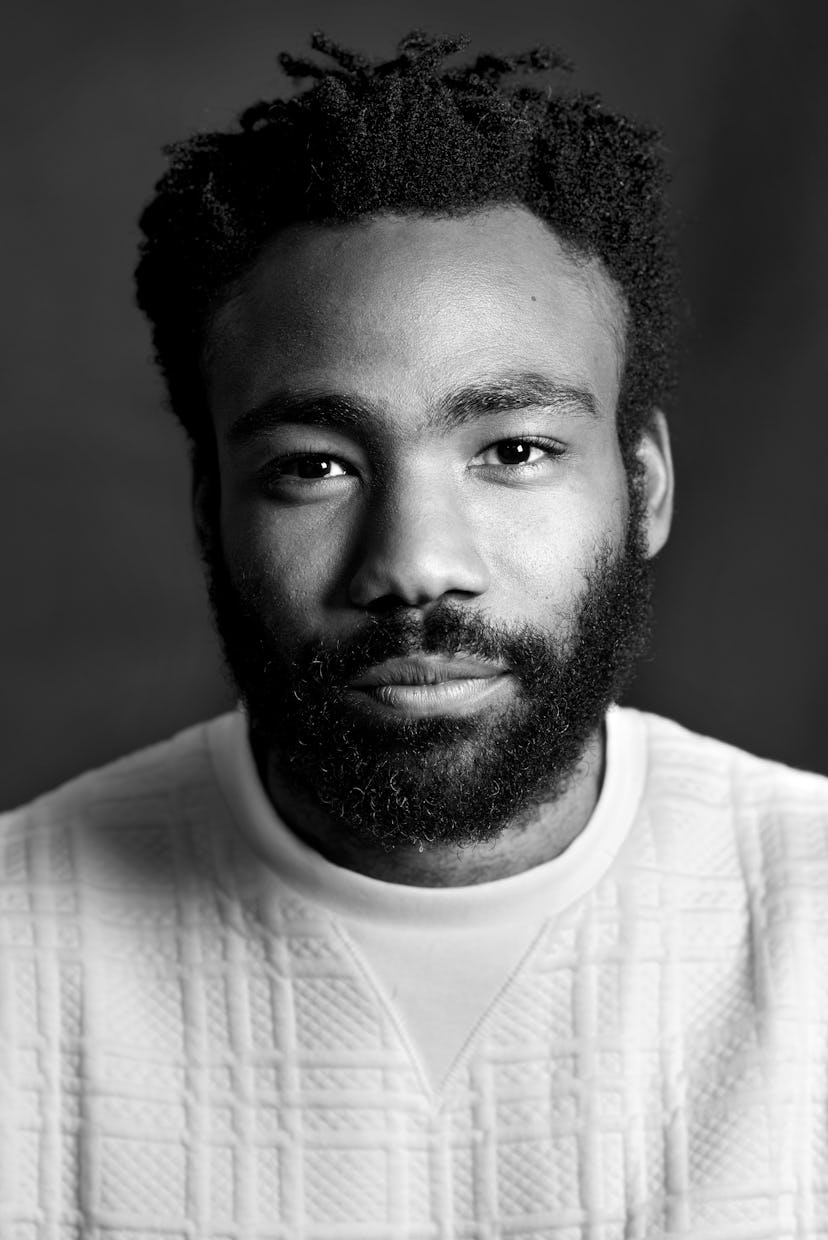Donald Glover and Lena Dunham Had an Uncomfortable Exchange After His Girls Takedown of White Women

One of the more memorable moments on Girls was when Donald Glover‘s short-lived character Sandy was dumped by Lena Dunham’s Hannah Horvath, and proceeded to deliver a laser-pointed takedown of white women in the process. “Oh, I’m a white girl, and I moved to New York and I’m having a great time, and, Oh, I’ve got a fixed-gear bike, and I’m going to date a black guy and we’re going to go to a dangerous part of town,” said Glover’s black Republican character, who lasted two episodes at the start of the HBO show’s second season. As it turns out, though, Glover didn’t have to study those lines; they came naturally to him in the moment.
“Every massive insult of white women was one hundred per cent him,” Lena Dunham told The New Yorker in the magazine’s recent profile of the Atlanta mastermind.
What’s more notable, though, is how the experience of being on Dunham’s show registered with Glover. While Glover didn’t directly address it, the response he shared with Dunham afterwards said it all. “I e-mailed him later to say, ‘I hope you feel the part on ‘Girls’ didn’t tokenize you,’,” Dunham said, “and his response was really Donald-y and enigmatic: ‘Let’s not think back on mistakes we made in the past, let’s just focus on what lies in front of us.’”
Despite this moment, which at best forced Dunham—a figure who has become a walking thinkpiece for white privilege ever since Girls first aired, and, perhaps, more so outside of the show—to do some self-reflection, the show creator only offered praise for Glover. “At least 20 people have told me, ‘I’d like to make something like Atlanta,” she said. “And I say, ‘Oh, you mean a show that toggles between painful drama and super-surrealist David Lynch moments to take on race in America?’ That’s not a genre—that’s Donald.”
When it comes to his own show, however, Glover did address race in the New Yorker story. “I don’t even want them laughing if they’re laughing at the caged animal in the zoo,” he said of white viewers of Atlanta. “I want them to really experience racism, to really feel what it’s like to be black in America. People come to ‘Atlanta’ for the strip clubs and the music and the cool talking, but the eat-your-vegetables part is that the characters aren’t smoking weed all the time because it’s cool but because they have P.T.S.D.—every black person does. It’s scary to be at the bottom, yelling up out of the hole, and all they shout down is ‘Keep digging! We’ll reach God soon!’ ”
He also talked about why the show’s white characters are so important to the story he’s telling: “On our show, we sometimes have a problem with white actors playing what they think we want them to be: the villain,” he said. “But it’s more painful if you think you’re not the villain.”
As for the second season of Atlanta, which premieres this Thursday, March 1, Glover said simply, “The second season of ‘Atlanta’ will be a classic.” “A lot of this season is me proving to people that I didn’t get those Emmys just because of affirmative action,” he said. The second season will also be darker, such as in one scene where someone is robbed by an old friend. “That scene is so sad to me,” Glover said. “That’s what it is when you’re at the bottom—there’s a knife between you, and whoever doesn’t pick up the knife is going to die.” Which is to say, the America depicted in Atlanta couldn’t be more different from that in Girls.